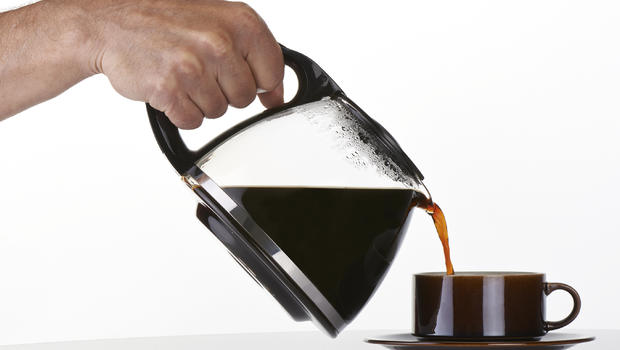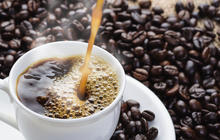
A small and preliminary study suggests that caffeine does more than serve as an eye-opener: When consumed a few hours before bed, the most widely consumed psychoactive drug in the world seems to disrupt the body's internal clock.
And this could cause jet lag-style sluggishness during daylight hours, the study authors suggest.
The research doesn't say anything about how coffee consumption in the morning or throughout the day may affect the body's internal clock. And the findings need to be confirmed.
Still, it seems likely that coffee at night "isn't just keeping you awake," said study co-author and sleep researcher Kenneth Wright Jr., a professor with the Department of Integrative Physiology at the University of Colorado at Boulder. "It's also pushing your [internal] clock later so you want to go to sleep later."

At issue: The body's circadian clock, which sets biological rhythms such as sleep/wake cycles. Every cell in the human body has a clock, Wright said.
The new study aims to understand how caffeine may affect the body clock. Other research has suggested that caffeine disrupts body clocks in other organisms and species such as algae, fruit flies and perhaps mice, he said.
Wright and his colleagues examined five people who were studied over 49 days. Three hours before their regular bedtime, they were assigned to consume a capsule of caffeine equal to a double espresso -- with the amount adjusted to their body size -- or a placebo capsule. They were also exposed to either bright or dim light. Bright light can reset the body clock and make people want to go to bed later.
The researchers found that the caffeine appeared to delay the body clocks of the study participants by 40 minutes, about half the delay linked to exposure to bright light.
The amount of caffeine was small, the equivalent of about a double espresso or medium cup of coffee for most people, Wright said. "We're not talking about a lot of caffeine here."
The study suggests that caffeine affects signaling within cells, disrupting a "core component" of the cellular circadian clock.
Sleep researcher Jamie Zeitzer, an assistant professor of psychiatry and behavioral sciences at Stanford University, praised the study, noting that it suggests caffeine has an effect beyond making people feel more alert by reducing or masking theneed for sleep.

But, he added, the number of participants in the study was very small, making it hard to apply the findings to people in general. And the effect of caffeine itself seems to add little to the effects of bright light therapy, which may limit "this as a typical countermeasure for jet lag or shift work," he said.
If the new study findings can be confirmed, what do they mean for people who get caffeine through coffee and other drinks and foods? The research seems to confirm what coffee fans already know: Don't down a cup of joe when it's late if you want to avoid feeling sluggish the next day due to lack of sleep.
"Removing coffee from your diet or just having it in the morning might help you achieve earlier bedtimes and wake times," Wright said.
But caffeine before bed isn't necessarily a bad thing for everyone, he said, since people's sleep cycles vary. And, Wright added, the research raises the prospect of a medical advance: It's possible that caffeine could be used to treat jet lag since it seems to have the power to adjust body clocks.
Zeitzer, the Stanford researcher, cautioned that using caffeine to combat jet lag "would need to be done judiciously and only in those people in whom caffeine does not have a negative impact on sleep."
The study appears in the Sept. 16 issue of Science Translational Medicine.
CBSNews


No comments:
Post a Comment